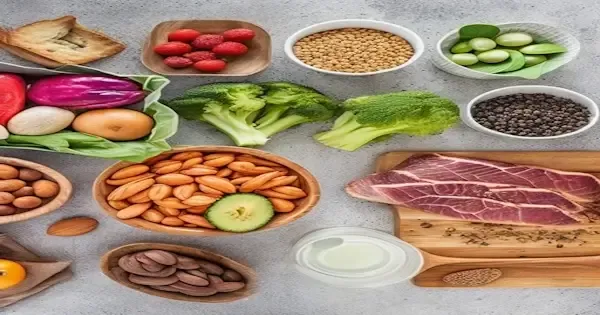Whole30 Guide: Foods to Avoid
Welcome to your ultimate guide to the Whole30 diet, where we'll delve into the essential foods to avoid on this transformative journey towards improved health and well-being. Whole30 is more than just a diet; it's a commitment to eliminate certain foods from your daily consumption to promote better digestion, increased energy levels, and overall vitality. By understanding the foods to steer clear of during this 30-day reset, you're setting yourself up for success and long-term wellness. Let's explore the comprehensive list of foods to avoid while on the Whole30 diet.
 |
| Whole30 Foods to Avoid |
Table of Contents
- Avoid Sugars and Sweeteners
- Eliminate Grains
- Say No to Dairy
- Stay Away from Legumes
- Farewell, Processed Foods
- Cut Out Unhealthy Fats
- Frequently Asked Questions
Avoid Sugars and Sweeteners
One of the fundamental principles of the Whole30 diet is the elimination of all forms of added sugars and sweeteners. This includes refined sugars, artificial sweeteners, and even natural alternatives like honey and maple syrup. By avoiding these sources of sweetness, you allow your taste buds to reset, reducing cravings and stabilizing your blood sugar levels.
Eliminate Grains
Grains are another category of foods to steer clear of during your Whole30 journey. This includes wheat, rice, oats, and other grains. Removing grains from your diet can help reduce inflammation and aid in better digestion. Instead of relying on grains, focus on nutrient-dense vegetables and fruits to fulfill your dietary needs.
Say No to Dairy
Dairy products are known to cause digestive issues for many individuals. During your Whole30 experience, it's recommended to eliminate dairy products such as milk, cheese, yogurt, and butter. By cutting out dairy, you can assess whether it has been contributing to any discomfort or bloating, and you can explore alternative sources of calcium and healthy fats.
Stay Away from Legumes
Legumes, which include beans, lentils, and peanuts, are excluded from the Whole30 diet due to their potential to disrupt digestion and contribute to gut inflammation. Although legumes offer protein and fiber, there are plenty of other protein sources you can enjoy during this period of dietary adjustment.
Farewell, Processed Foods
Processed foods are packed with additives, preservatives, and artificial ingredients that can hinder your journey to improved health. The Whole30 diet emphasizes whole, unprocessed foods that provide essential nutrients without the hidden chemicals found in many processed products. Avoid packaged snacks, sugary beverages, and pre-packaged meals to fully embrace the benefits of this dietary reset.
Cut Out Unhealthy Fats
Fats are a vital part of a balanced diet, but not all fats are created equal. Trans fats and hydrogenated oils, often found in fried and processed foods, should be avoided on the Whole30 diet. Instead, focus on incorporating healthy fats from sources like avocados, nuts, and olive oil to support your overall well-being.
Frequently Asked Questions
What beverages can I consume during Whole30?
While water is your best option, you can also enjoy herbal teas and black coffee in moderation. Just remember to skip the added sugars and dairy-based creamers.
Can I use Whole30 as a long-term eating plan?
Whole30 is designed as a 30-day reset to help you identify food sensitivities and promote healthier eating habits. However, many people choose to adopt some of its principles for the long term, such as focusing on whole foods and minimizing processed options.
Are there any exceptions to the food groups I should avoid?
The Whole30 program is meant to be a strict reset, so it's recommended to adhere to the guidelines without exceptions. This will provide you with the most accurate insights into how different foods affect your body.
Can I reintroduce the eliminated foods after 30 days?
Absolutely! The reintroduction phase is a crucial part of the Whole30 process. After the initial 30 days, you can gradually reintroduce eliminated foods one at a time, monitoring how your body reacts to each. This will help you determine which foods you can incorporate back into your diet and which ones are best avoided.
Conclusion
The Whole30 diet presents a valuable opportunity to reset your relationship with food and enhance your overall well-being. By eliminating sugars, grains, dairy, legumes, processed foods, and unhealthy fats, you can pave the way for improved digestion, increased energy, and a better understanding of your body's needs. Remember, Whole30 is not just about what you're avoiding but also about embracing whole, nutrient-rich foods that nourish and support your health for the long term.
Embark on this transformative journey with the knowledge that every food choice you make is a step towards a healthier and more vibrant you.


